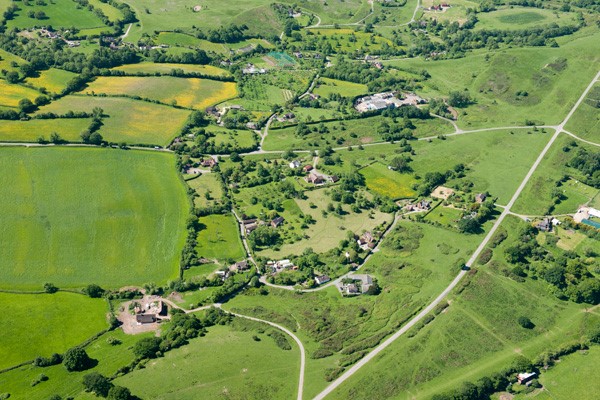Archaeological Advice and Management
Worcestershire Archive and Archaeology Service is a Registered Organisation with the Chartered Institute for Archaeologists (CIfA).
Our role is to support the conservation, management and interpretation of Worcestershire’s unique heritage. We work with landowners, communities, developers, archaeologists, and local planning authorities to shape positive change. We do this through providing advice for development & infrastructure planning, in relation to agri-environment schemes, for managing existing and new woodland, and for flood alleviation schemes.
We also support community groups and individuals looking for advice to manage archaeological sites or historic structures that are being affected by neglect, intensive farming, erosion, burrowing animals or scrub.
Contact Us Services and Charges
Local authorities have a duty to conserve the historic environment by ensuring Local Plan policies are in place to identify what is important and manage change in a positive way. Section 16 of the National Planning Policy Framework (NPPF) lays out the overarching planning policy for the historic environment in England, guiding the creation of Local Plans that are then used to determine planning applications.
We advise the county’s local planning authorities on impacts to, and opportunities for, undesignated heritage assets. These include any buried archaeological remains that are not legally protected as Scheduled Monuments, as well as unlisted buildings and landscapes.
Worcestershire Archive and Archaeology Service provides archaeological development management planning advice for Wyre Forest, Bromsgrove and Redditch districts. Worcester City Council and Wychavon and Malvern Hills District Councils have their own archaeological planning advisors who can be contacted direct for information and advice.
We can provide advice and support at every stage of the process from pre-application through to ensuring the implementation of archaeological works required by condition on a grant of consent.
Archaeological deposits are a finite resource, and as such all archaeological fieldwork carried out in the county must be to the highest possible standard, for once it has been removed or damaged, it cannot be reinstated. The Chartered Institute for Archaeologists (CIfA) is the profession’s guiding body. The Institute publishes Standards and Guidelines for good practice and has an accreditation process for archaeological organisations. A list of accredited archaeological contractors can be found on the CIfA website. You are not required to use an accredited member to undertake your work in Worcestershire, but all archaeological work carried out as part of the development management process must adhere to CIfA Standards and Guidelines.
We also have a county specific guidance document primarily for professional archaeological contractors undertaking projects as part of the development management process or as a condition of Faculty (Church of England). The guidance is relevant as good practice for anyone undertaking archaeological projects within the county, including community-led projects. It specifies the standards required for archaeological projects undertaken in all the County’s districts (additional requirements apply to projects within the City of Worcester).
Standards and guidelines for archaeological projects
Please note that a fee is chargeable for the provision of the historic environment planning advisory service.
Services and Charges
Each Local Planning Authority (LPA) has an adopted Local Plan, supported by a range of supplementary planning documents, for example Local Heritage Lists. The Plan lays out the policies against which all planning applications are decided within the LPA area. The County Council LPA is responsible for minerals, waste and infrastructure planning. Each district/borough LPA is responsible for other development, including housing.
We support the LPAs of Worcestershire in writing and delivering their Local Plan. We also provide advice at the strategic planning stage on the implications of future housing allocations and new settlements on the historic environment. We encourage the recognition of the importance of the historic environment in place-making and sustainable development.
South Worcestershire Development Plan
Wyre Forest District Council Adopted Local Plan
Our Historic Environment Advisors can provide advice for works that may affect archaeological remains in rural areas. This may include screening opinions in accordance with Environmental Impact Assessment (Agriculture) (England) (No.2) (Amendment) Regulations 2017 or advice for Woodland creation, management or deforestation under the UK Forestry Standard. Further information, including applicable charges, and contact details are provided within our services and charges document.
Worcestershire Archive and Archaeology Service offers a bespoke range of services, including landscape surveys and input into conservation management plans for archaeological sites. We also support groups and individuals looking to manage sites outside of the development process. As an example, we supported the Feckenham Manorial Moated Site Community Archaeology Project in their endeavour to remove the site from Historic England’s Register of Heritage Assets at Risk. The service also has a dedicated learning and outreach team that can run school visits and events, or design interpretation panels and online content. Costs vary depending on the nature and complexity of the input required.
We can also help with community planning, including provision of HER Searches and supporting guidance for example the “Your Place Matters” Toolkit.
To discuss a potential project please contact us.
Listed Buildings, Scheduled Monuments, Registered Battlefields and Registered Parks & Gardens are all nationally protected and may require additional permissions and advice from Historic England on behalf of the Secretary of State. Further information can be found on Historic England’s website. You may need to talk to your local Conservation Officer in the first instance in regard to development affecting a Listed Building or a Registered Park & Garden.

Photo showing farm buildings and fields boundaries within a Worcestershire Landscape © Historic England